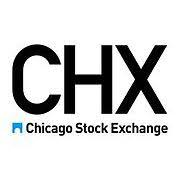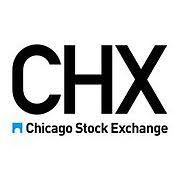
A proposed merger between the Chicago Stock Exchange and an investor group that is linked to China has been rejected by the United States.
The matter was under review by officials for more than two years. This decision brings a closure to that review as well.
The Committee on Foreign Investment in the United States had approved of the merger in the initial phases but it also had to be ratified and cleared by the Securities and Exchange Commission (SEC).
The tie-up was initially approved by the Committee on Foreign Investment in the United States, pending further approval by the Securities and Exchange Commission (SEC). But the merger was opposed by a number of US politicians, including President Trump, who are opposed to the idea of a Chinese company investing in a US exchange.
CHX Holdings, the owner of the Chicago Stock Exchange, was proposed to be acquired by the Chinese-led North America Casin Holdings group according to the merger proposal.
The exchange would have got access to “vital capital” because of the deal, the exchange had said. The exchange however handles only about 0.5 per cent of all of the U.S. stocks.
That funding would have been used "to boost numerous initiatives designed to benefit the city of Chicago, the US economy and market structure as a whole".
The SEC had ultimately said that the proposed merger and Chinese investment in the exchange were not according to the rules that are applicable for U.S. stock exchanges even though the commission staff had initially approved of the deal in August of 2017 through an initial voting.
"The review process has also raised questions about whether the proposed ownership structure will allow the commission to exercise sufficient oversight of the exchange" the SEC said.
A number of other proposals of Chinese companies partnering with U.S. companies to sell their products in the U.S. have earlier been blocked to deter such moves and the latest decision by the SEC follows in line with those measures.
A deal to allow the sale of its new range of smartphones by China's telecommunications giant Huawei with a reported U.S. carrier – believed to be AT&T, had not been possible, the Chinese company had said in January.
In another incident that took place earlier in the year, the sale of U.S. money transfer company Moneygram to Ant Financial – a Chinese company belonging to the digital Chinese giant Alibaba, was blocked by U.S. authorities.
That blockade is being regarded to be a deal of the highest profile related to a Chinese company attempting to buy out a U.S. company that has been blocked ever since Donald Trump assumed office as the president of country.
They applauded the decision, said US politicians who had opposed the stock exchange deal
"This has been a long fight, and I'm grateful we now have a president who recognises the national security threats of allowing a Chinese government-affiliated company to own the Chicago Stock Exchange," Republican congressman Robert Pittenger said in a statement.
(Source:www.bbc.com)
The matter was under review by officials for more than two years. This decision brings a closure to that review as well.
The Committee on Foreign Investment in the United States had approved of the merger in the initial phases but it also had to be ratified and cleared by the Securities and Exchange Commission (SEC).
The tie-up was initially approved by the Committee on Foreign Investment in the United States, pending further approval by the Securities and Exchange Commission (SEC). But the merger was opposed by a number of US politicians, including President Trump, who are opposed to the idea of a Chinese company investing in a US exchange.
CHX Holdings, the owner of the Chicago Stock Exchange, was proposed to be acquired by the Chinese-led North America Casin Holdings group according to the merger proposal.
The exchange would have got access to “vital capital” because of the deal, the exchange had said. The exchange however handles only about 0.5 per cent of all of the U.S. stocks.
That funding would have been used "to boost numerous initiatives designed to benefit the city of Chicago, the US economy and market structure as a whole".
The SEC had ultimately said that the proposed merger and Chinese investment in the exchange were not according to the rules that are applicable for U.S. stock exchanges even though the commission staff had initially approved of the deal in August of 2017 through an initial voting.
"The review process has also raised questions about whether the proposed ownership structure will allow the commission to exercise sufficient oversight of the exchange" the SEC said.
A number of other proposals of Chinese companies partnering with U.S. companies to sell their products in the U.S. have earlier been blocked to deter such moves and the latest decision by the SEC follows in line with those measures.
A deal to allow the sale of its new range of smartphones by China's telecommunications giant Huawei with a reported U.S. carrier – believed to be AT&T, had not been possible, the Chinese company had said in January.
In another incident that took place earlier in the year, the sale of U.S. money transfer company Moneygram to Ant Financial – a Chinese company belonging to the digital Chinese giant Alibaba, was blocked by U.S. authorities.
That blockade is being regarded to be a deal of the highest profile related to a Chinese company attempting to buy out a U.S. company that has been blocked ever since Donald Trump assumed office as the president of country.
They applauded the decision, said US politicians who had opposed the stock exchange deal
"This has been a long fight, and I'm grateful we now have a president who recognises the national security threats of allowing a Chinese government-affiliated company to own the Chicago Stock Exchange," Republican congressman Robert Pittenger said in a statement.
(Source:www.bbc.com)














